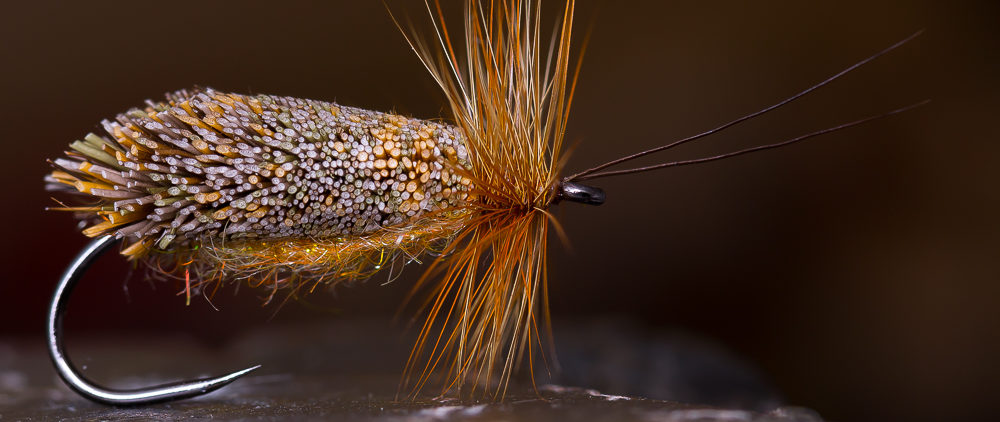Good things are often very simple. Like these small nymphs tied on a short shank hook. The body length without the bead is 5mm. Even this are small nymphs, the hook gap is pretty big, so the hooking quality is still good. You can fish the nymphs very deep and you don’t have to be afraid of loosing them, because if you do so, you can tie some new ones in a short time.
Schlagwort-Archive: Fly
Curved Emerger
CDC-Ballon-Emerger # 16
Zonker Streamer
Three Zonker Streamer # 6. A hook, small Fish Skull, mono for ribbing, dubbing, zonker, some marabou and thread. You don’t need more for a good streamer with awesome movement in the water. You can fish it down and dirty where the big fish are and you don’t have to be afraid to loose your precious streamer, because you can tie some new – easy like 1-2-3….almost ;-) 
Playing With Colors
Sparkle Mayfly
Sparkle Mayfly. Wings are two colors of CDC (natural and white from Trout Line) with a few strands of very thin flash. There’s a little sparkle in the wings. It’s hard to show that on the picture, in reality, it’s looks very posh! Thorax is normal dubbing, wingcase is made from pheasant and the body is made with Polish Quills, secured with Bug Bond. Tails are synthetic Mayfly Tails. For the hook I’ve used a D23BL # 14 from Trout Line.
Caddis Pupa with Tungsten Bead
yellow-brown CDC Dun fast step by step
New Baltic Candy
Stickleback Zonker – Fly Tying Tutorial
I made a new little video about an easy to tie pattern of a Stickleback.
[vimeo width=“600″ height=“500″]https://vimeo.com/108999238[/vimeo]
Seatrout Fly „Food“ Video Tutorial
I made last night a video tutorial of a seatrout pattern for the Baltic Sea. I just called it „Food“, because maybe the seatrouts think it’s a little fish or a shrimp….just food.
Unfortunately Vineo reduced the quality of the video. I’ll have to work on this.
Anyway, I hope you’ll like it. I think I will do some more videos in the future. Maybe you tell me, what you think about it.
[vimeo width=“600″ height=“500″]https://vimeo.com/108696581[/vimeo]
Caramel Shrimps
Caramel Shrimp Step By Step Video
This is the first time I made a video of the single steps to tie the fly. I hope you like it. The fly is a very good and looks even better in the water. Great pattern for Seatrout.
[vimeo width=“600″ height=“400″]http://vimeo.com/108574605[/vimeo]
Flatwing Tobis
I tied two of this flies 3 times. Tied it, cut it up, tied it, cut it up again, tied it a third time. I was just not satisfied with the result and I don’t put a „bad“ fly in my box, because I know that I won’t fish it and I won’t give it away as a present. I just throw it in the trash after some years. Maybe the fish doesn’t give a damn, but if you don’t have faith in your fly, you won’t fish it the right way.
UV Shrimps and Flatwing Tobis
Here is a spey shrimp tied with a little bit of uv materials. You can’t see them in normal light, jsut when you use your uv torch. Some say fish can’t see uv light, other say they have definitely more hook ups with flies tied with a bit of uv materials. I’ll let the fish decide… ;-)
Last but not least a Flatwing Tobis





























